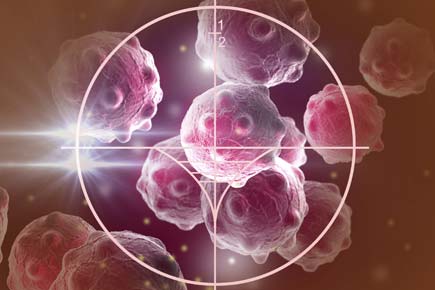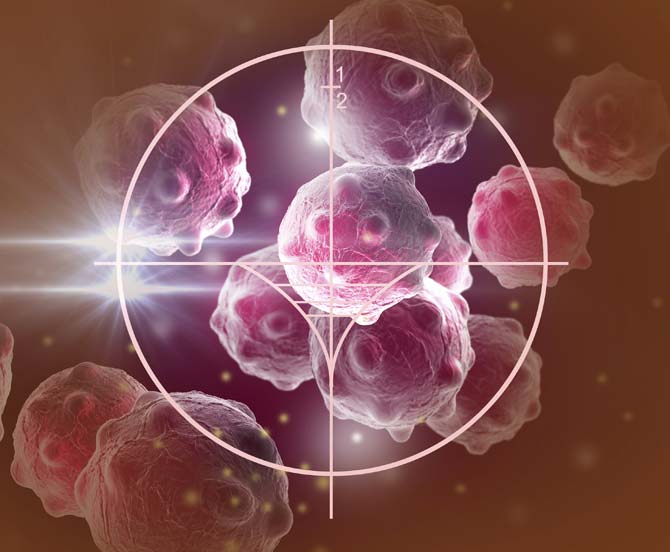Researchers have identified a new innate immunity mechanism that protects mammals from viral oncogenesis, the process by which viruses cause normal cells to become cancerous

Cancer cells
New York: Researchers have identified a new innate immunity mechanism that protects mammals from viral oncogenesis, the process by which viruses cause normal cells to become cancerous.
ADVERTISEMENT
Given the prevalence of virus-related cancers in humans, the discovery, published in the journal Proceedings of the National Academy of Sciences, could eventually contribute to development of new cancer therapies.

Representational picture
"More than 20 percent of human cancers -- as well as a number of other diseases -- are linked to chronic viral infections," said study first author Xiaonan Dong from University of Texas Southwestern Medical Centre in the US.
This study revealed that the autophagy-related protein beclin 2 can help break down the key oncogenic viral protein associated with Kaposi's sarcoma, a type of cancer most commonly found in people with HIV infection or transplant-related suppression of their immune systems.
Autophagy is a cellular "housekeeping" process in which the body's cells destroy damaged proteins and organelles.
The present study revealed that, in addition to mediating autophagy, beclin 2 is also involved in a novel immune pathway that suppresses viral infection and virus-caused cancer.
"We found that beclin 2 can promote the degradation of Kaposi's sarcoma-associated herpesvirus G protein-coupled receptor (GPCR), and thereby suppress its cancer-causing signaling," Dong explained.
"Transgenic mice deficient in beclin 2 are more prone to viral GPCR-driven oncogenesis that resembles human Kaposi's sarcoma," Dong pointed out.
Kaposi's sarcoma, which can affect the skin and internal organs, often affects people infected with HIV, but also has an incidence of about one in 200 transplant patients.
"These findings deepen understanding of the mechanisms that our immune system uses to protect against cancer and potentially against other serious diseases caused by pathogenic viral proteins," Beth Levine from University of Texas Southwestern Medical Centre said.
"They may contribute to the identification and development of novel therapeutic targets and antiviral therapies," Levine explained.
 Subscribe today by clicking the link and stay updated with the latest news!" Click here!
Subscribe today by clicking the link and stay updated with the latest news!" Click here!






